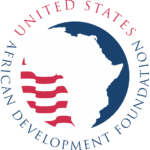In its avowed bid towards reshaping Africa’s economic destiny, the African Regional Organization of the International Trade Union Confederation (ITUC-Africa) is set to launch a trade union led campaign targeted at reversing Africa’s sovereign debt trend.
Statistics show an alarming trend of indebtedness by African countries. As of 2017, six African countries were already in debt distress, with an additional nine nations teetering on the brink. Shockingly, 19 African countries exceeded the 60% debt-to-GDP threshold, significantly impeding critical sectors such as education, health, and social protection.
“Africa’s post-independence journey has been marked by arduous attempts to navigate the intricacies of sovereign debt, “Hod Anyigba, Chief Economist at ITUC-Africa & Executive Director, ALREI said.
The continent witnessed numerous debt restructuring programs, notably the Heavily Indebted Poor Country Initiative (HIPC) and the Multilateral Debt Relief Initiative (MDRI).
Anyigba added that “While these initiatives provided temporary respite, most African countries are once again ensnared in a debt crisis, characterized by fiscal inefficiencies, corruption, and global economic tremors predating recent global pandemics and conflicts.”
Trade Unions in Africa say the debt crisis is having dire implications on workers within the continent, their communities, and economies.
Joel Akhator Odigie, Deputy General Secretary, ITUC-Africa, said the repercussions are profound and multifaceted.
“This crisis has not only jeopardized economic stability but has disproportionately affected workers, the marginalized, and excluded segments of society. Reduced growth prospects, diminished investments in essential sectors, deepened poverty, and exacerbated inequality are its harrowing legacies,” he said.
According to him, in response to the debt burden, the ITUC-Africa will be launching a comprehensive campaign, uniting trade unions and solidarity partners under a singular mission: to reverse Africa’s sovereign debt trend.
He said, “Anchoring this initiative is the development of an incisive ‘African Trade Union black paper on debt’. This ground-breaking research unveils the stark realities faced by workers due to the public debt crisis, emphasizing the devaluation of labour and the severe limitations on employment generation, particularly within the formal wage economy.”
The campaign will be launched in collaboration with five other progressive Civil Society Organisation on the continent that are also members of the Stop The Bleeding Consortium – an initiative to halt Illicit Financial Flows (IFFs) activities from Africa to increase internal resource mobilisation possibilities to drive inclusive and shared development.
Odigie explained that the launch of the campaign scheduled for November 29, 2023, in Nairobi, the Kenya capital, is a clarion call for change, resilience, and a future where workers’ rights and economic stability harmoniously coexist.
“It represents Africa’s firm stance in steering its destiny towards sustainable debt management,” he said.



